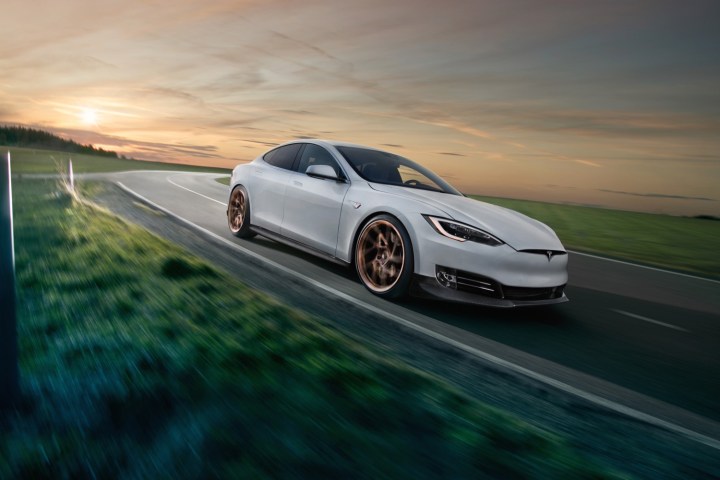
Electric cars with muscle car-like power and jaw-dropping acceleration times are more likely to crash than comparable, gasoline-powered models, according to a study carried out by French insurance company Axa. Conversely, the same study concluded that tamer battery-powered cars are less likely to be involved in an accident.
“We saw that in the micro and small car classes, slightly fewer accidents are caused by electric autos. If you look at the luxury and SUV classes, however, we see 40% more accidents with electric vehicles,” revealed Bettina Zahnd, the head of accident research and prevention for Axa’s Swiss division, in an interview with Reuters.
Axa came to these conclusions by examining claims data submitted by its customers. Zahnd added acceleration is one of the factors — but, crucially, not the only factor — that determines how often electric cars crash.
Some high-end electric cars are capable of rocket-like acceleration; the P100D-badged variants of Tesla’s Model S and Model X hit 60 mph from a stop in under three seconds. An electric motor produces its full torque output right away, so an EV blasts off as soon as the driver presses the skinny pedal. Even a high-performance gasoline- or diesel-powered engine needs a little bit of time to build up power. For example, the BMW M5 Competition uses a twin-turbocharged, 4.4-liter V8 engine that makes 617 horsepower at 6,000 rpm and 553 pound-feet of torque between 1,800 and 5,800 rpm. The engine needs to spool up before it delivers its full, sweet-sounding output. That doesn’t make the M5 better or worse than a Model S, but it means the two cars behave differently under heavy acceleration.
Half of the electric car drivers polled by Axa admitted they had to adjust the way they drive when they switched to a powerful electric car. The study doesn’t single out a specific brand or model, but the quickest EVs widely available in Europe and abroad wear a Tesla badge. Croatia’s Rimac manufactures electric hypercars, but they’re manufactured in tiny numbers.
At the opposite end of the spectrum, small electric cars like the Renault Zoe are about as powerful and as quick as small cars with a piston engine. They also come with much smaller batteries than bigger EVs due to packaging constraints, so driving them flat-out will sap their range in record time, plus they’re developed and marketed as economy cars, not hot rods, so motorists have little incentive to seek driving enjoyment when they’re behind the wheel. These characteristics explain why they’re a little bit less likely to crash.
Interestingly, insurance prices don’t always reflect the conclusions of Axa’s study.
“If I look around Switzerland there are lots of insurers that even give discounts for electric autos because one would like to promote electric cars,” Zahnd pointed out.



